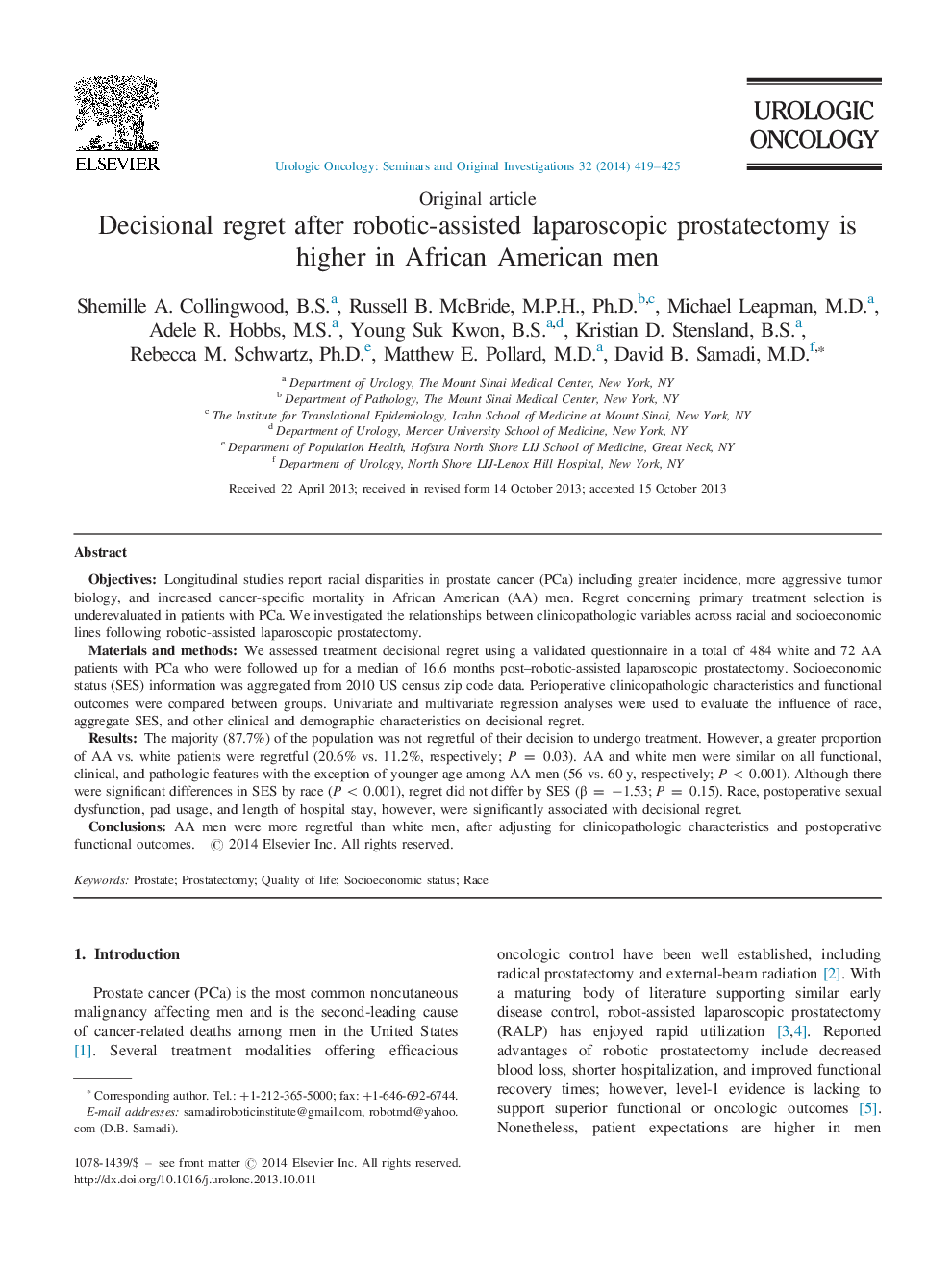| کد مقاله | کد نشریه | سال انتشار | مقاله انگلیسی | نسخه تمام متن |
|---|---|---|---|---|
| 6194170 | 1259354 | 2014 | 7 صفحه PDF | دانلود رایگان |
ObjectivesLongitudinal studies report racial disparities in prostate cancer (PCa) including greater incidence, more aggressive tumor biology, and increased cancer-specific mortality in African American (AA) men. Regret concerning primary treatment selection is underevaluated in patients with PCa. We investigated the relationships between clinicopathologic variables across racial and socioeconomic lines following robotic-assisted laparoscopic prostatectomy.Materials and methodsWe assessed treatment decisional regret using a validated questionnaire in a total of 484 white and 72 AA patients with PCa who were followed up for a median of 16.6 months post-robotic-assisted laparoscopic prostatectomy. Socioeconomic status (SES) information was aggregated from 2010 US census zip code data. Perioperative clinicopathologic characteristics and functional outcomes were compared between groups. Univariate and multivariate regression analyses were used to evaluate the influence of race, aggregate SES, and other clinical and demographic characteristics on decisional regret.ResultsThe majority (87.7%) of the population was not regretful of their decision to undergo treatment. However, a greater proportion of AA vs. white patients were regretful (20.6% vs. 11.2%, respectively; P = 0.03). AA and white men were similar on all functional, clinical, and pathologic features with the exception of younger age among AA men (56 vs. 60 y, respectively; P<0.001). Although there were significant differences in SES by race (P<0.001), regret did not differ by SES (β =â1.53; P = 0.15). Race, postoperative sexual dysfunction, pad usage, and length of hospital stay, however, were significantly associated with decisional regret.ConclusionsAA men were more regretful than white men, after adjusting for clinicopathologic characteristics and postoperative functional outcomes.
Journal: Urologic Oncology: Seminars and Original Investigations - Volume 32, Issue 4, May 2014, Pages 419-425
